
Error: No layouts found
Every year, Einstein researchers garner millions of dollars in grants, primarily from the National Institutes of Health (NIH). (In 2014, the most recent federal fiscal year for which information is available, Einstein was awarded more than $156 million in NIH grants, placing it 25th out of the 138 United States medical schools that receive NIH funding.) Other sources of research funding include pharmaceutical companies and organizations such as New York Stem Cell Science and the American Cancer Society. Described below are some of the larger grants that Einstein researchers have received over the past several months.
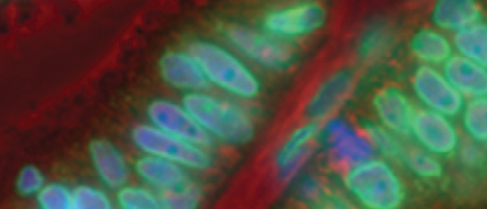
Diabetes Research
Einstein and the Icahn School of Medicine at Mount Sinai have received a $10.5 million, five-year grant from the NIH to continue their Diabetes Research Center (DRC), which has been newly named the Einstein−Mount Sinai DRC. The regional collaborative combines Einstein’s basic and clinical research strengths with Mount Sinai’s beta cell and community outreach expertise. Researchers and clinicians at Montefiore Health System, Cornell University, Weill Cornell Medical College, Hunter College, Winthrop-University Hospital, Stony Brook University and NYU Langone Medical Center also participate. This new grant is part of an ongoing NIH effort to encourage multi-institution, regional research centers.

The Brain and Aging
The National Institute on Aging has awarded Dongsheng Cai, M.D., Ph.D., a five-year, $2.4 million grant to support his study of how aging processes may be affected by the IKKb/NF-κB pathway involved in immune system activation and inflammation. Research involving the brain’s hypothalamus has shown that this pathway plays an important role in aging. Dr. Cai is studying hypothalamic astrocytes, a type of brain cell that supports neurons, and whether activation of the IKKb/NF-κB pathway in astrocytes early in the aging process may cause these cells to produce inflammatory factors that damage neurons. Dr. Cai’s lab will look at physiological, histological and molecular effects on mouse models in which individual components of the IKKb/NF-κB pathway have been knocked out in particular cell types. These results could lead to better understanding of the precise cellular mediators of brain inflammation and may offer new targets for treating age-related illnesses in the brain. Dr. Cai is a professor of molecular pharmacology.

Enzymes, Embryos and Cancer
David Shechter, Ph.D., has been awarded a combined $2.3 million in funding from the National Institute of General Medical Sciences of the NIH and the American Cancer Society (ACS). The ACS grant supports his study of regulation of the chaperones that escort histone proteins to assemble chromatin, the physiological form of the genome containing epigenetic information. Epigenetics, information layered on top of the DNA in its histone packaging, is significant for its role in development and in cancer. The NIH grant supports his study of PRMT5-MEP50, a histone-modifying enzyme complex that is required for embryonic development but is overexpressed in many types of cancer. Dr. Shechter will investigate the biochemical mechanisms by which PRMT5-MEP50 targets the histone proteins essential for epigenetic regulation of embryonic development. Results from his work will be critical for new insight into cancer and for designing new drugs. Dr. Shechter is an associate professor of biochemistry.

Focus on an Autoimmune Disease
Systemic lupus erythematosus (SLE) is an autoimmune disease that can involve neuropsychiatric symptoms that turn up early in the disease and can occur independently of non-neurologic SLE symptoms. Neuropsychiatric SLE is common and has a poor prognosis, yet its causes are not well understood and there is no good therapy. Chaim Putterman, M.D., and colleagues have found evidence that a cytokine called TWEAK plays a major role in causing neuropsychiatric SLE in experimental animals, and that blocking TWEAK may be a novel treatment approach. Dr. Putterman has been awarded a five-year, $2 million NIH grant to explore the role of TWEAK and its cell-surface receptor, Fn14, in causing neuropsychiatric SLE in a mouse model of the disease. Dr. Putterman is a professor of medicine and of microbiology & immunology at Einstein and chief of the division of rheumatology in the department of medicine at Einstein and Montefiore.

Studying Vertebral Defects
Embryonic structures called somites develop into vertebrae. The number of somites—and hence the number of vertebrae—varies widely among vertebrate species, from about 10 in frogs to 33 in humans to more than 300 in snakes. Ertugrul M. Ozbudak, Ph.D., and colleagues found evidence that all vertebrate species use a similar “vertebrate segmentation clock”—a gene-expression oscillator that paces rhythmic segmentation of the vertebral column during embryonic development. Dr. Ozbudak has received a five-year, $1.9 million NIH grant in which he will use a model organism—the zebrafish—to find the genes involved in this oscillator mechanism. The genetic causes of many vertebral defects are unknown, and gene mutations involved in the oscillator mechanism are prime candidates for causing many of the birth defects affecting the vertebral column. Dr. Ozbudak is an associate professor of genetics.
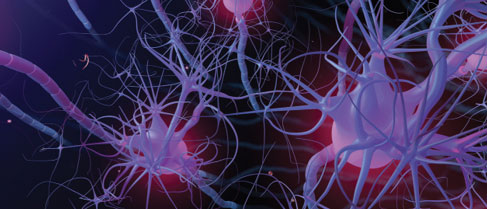
Renewed Support
Pablo E. Castillo, M.D., Ph.D., has received two renewal grants from the NIH—one for $1.83 million over four years and another for $1.67 million over five years. The funds from each of these grants support Dr. Castillo’s continued studies exploring how information is transferred between particular nerve cells and how changes in these pathways can affect various neuropsychiatric conditions. He is a professor in the Dominick P. Purpura Department of Neuroscience and holds the Harold and Muriel Block Chair in Neuroscience.

Stem Cell Funding
New York Stem Cell Science (NYSTEM) recently awarded the Ruth L. and David S. Gottesman Institute for Stem Cell and Regenerative Medicine Research, directed by Paul S. Frenette, M.D., an institutional training grant of $1.8 million. The NYSTEM funding will support the institute in providing individual investigators and multidisciplinary teams with the resources needed to train the next generation of scientists in stem cell biology; advance scientific knowledge in stem cell biology and breakthroughs in regenerative medicine; foster collaboration and innovation; and translate basic science discoveries into novel stem cell–based therapies that affect clinical care. In the five years since its inception, the institute has recruited new faculty members with fundamental research interests in stem cells; they have significantly strengthened the program. Dr. Frenette is also a professor of medicine (hematology) and of cell biology.
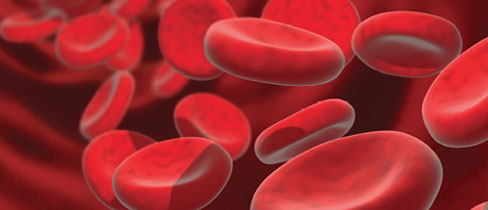
Novel Target for Blood Disease
Myelodysplastic syndromes (MDS) are a diverse group of incurable diseases that affect the bone marrow and are common among the elderly. MDS cause low blood counts, and 25 to 30 percent of MDS cases develop into an aggressive disease called acute myeloid leukemia. Amit K. Verma, M.B.B.S., and colleagues have shown that abnormally elevated levels of microRNA-21 (miR-21) in bone marrow may play a key role in causing MDS—and that miR-21 inhibitors have the potential for reversing the diseases. The NIH has awarded Dr. Verma a four-year, $1.4 million NIH grant to carry out further research on miR-21’s role in MDS. For example, he will investigate why miR-21 is upregulated in MDS, and he will study the effectiveness of novel inhibitors of miR-21 in human MDS cell samples and in mouse models of bone marrow failure. Dr. Verma is a professor of medicine (oncology) and of developmental and molecular biology at Einstein and chief of the division of hemato-oncology at Montefiore.
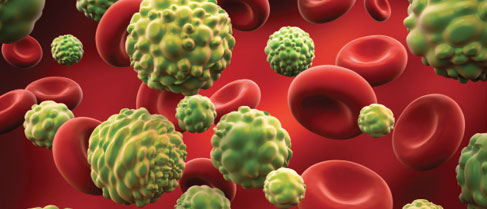
Targeting a Cancer Pathway
Phosphoinositide (PI) 3-kinases (PI3Ks) are intracellular enzymes that play an important role in cell proliferation, survival and metabolism. A particular form of PI3K called PI3KCB is unusual because it is regulated by G-protein coupled receptors (GPCRs). Importantly, PI3KCB has been implicated in the growth of tumors driven by mutations of the PTEN tumor-suppressor gene. Jonathan M. Backer, M.D., and Anne R. Bresnick, Ph.D., have received a four-year, $1.2 million NIH grant to investigate the mechanisms that regulate the activity of PI3KCB in normal and malignant cells. This work may lead to the design of novel drugs that target PI3Ks that are regulated by GPCRs in human cancers. Dr. Backer is a professor of molecular pharmacology and of biochemistry, and Dr. Bresnick is a professor of biochemistry.

Improving Drug Therapy
The NIH has awarded $1.1 million over three years to Thomas S. Leyh, Ph.D., to study human sulfotransferases (SULTs)—a 13-member family of enzymes that modulate interactions between hundreds of small molecules and their respective receptors. Dr. Leyh and colleagues will try to better understand the role of this enzyme family in biology and disease. SULTs inactivate hundreds of FDA-approved drugs through a process called sulfation. One aim of the research is to prevent sulfation by inserting side chains into FDA-approved drugs that will increase the concentration and half-lives of the active forms of these drugs in vivo. Ideally, this strategy will prevent sulfation without inhibiting the SULTs or reducing the drugs’ effectiveness. Dr. Leyh is a professor of microbiology & immunology.
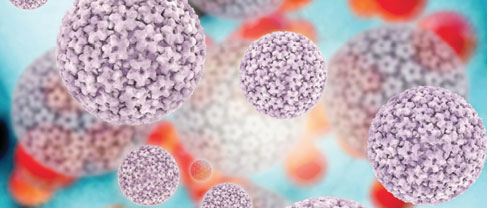
Innovative Teamwork to Develop Drugs
Under an agreement signed late last year between Pfizer, Inc., and Einstein, Pfizer will collaborate with Xingxing Zang, Ph.D., on cancer immunotherapy research. Pfizer’s funding and other assistance for this project come through the pharmaceutical company’s Centers for Therapeutic Innovation, one of Pfizer’s research units that is focused on academic-industry collaborations and designed to transform innovative, early-stage scientific discoveries into new drugs. Dr. Zang’s research focuses on immunotherapy, which involves modulating the immune system—revving it up or slowing it down—to treat major diseases such as cancer and autoimmune diseases. The research will be carried out in Einstein’s core facilities as well as at Pfizer. Dr. Zang is an associate professor of microbiology & immunology and of medicine (oncology) and the Miriam Mandel Faculty Scholar in Cancer Research.